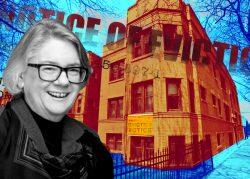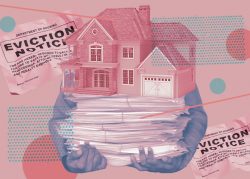A rental assistance program in Cook County that was passed in light of the pandemic is in flux, as the effectiveness of the program comes under scrutiny with funding deadlines approaching.
The initiative, called the Early Resolution Program, was launched in November 2020 to provide financial assistance to tenants facing eviction and landlords behind on payments. But on May 15, Chicago’s Department of Housing canceled its contract with the Resurrection Project, the organization that had been administering the program, the Chicago Tribune reported.
The initiative prolonged the eviction process to several months, rather than the standard of a few weeks that had been in place previously. It also gave tenants more time to seek free legal aid, mediation services and connections to rental assistance as part of the program.
With the height of the pandemic in the rearview, the Resurrection Project said it will no longer administer funds “as the pandemic and resources for the program wane.” In response, the city is working with the courts and the Early Resolution Program to “minimize disruption and resume taking new applications as soon as possible, as we value this program and are proud of its impact on Chicagoans,” Department of Housing spokesperson Rima Alsammarae said in a statement.
Last year, after a moratorium on evictions was lifted, the number of evictions enforced in Cook County was roughly 4,500, which was about 2,000 less than in 2019, the outlet reported, citing Cook County Sheriff’s Office data. The Early Resolution Program was a big reason for the relatively low number of evictions.
Some landlords claim that tenants took advantage of the initiative, though. Chicago landlord Ryan Sinwelski said he tried to evict a tenant for a year, but the tenant dragged out the process by refusing to go through the eviction diversion program and demanded a trial instead. The tenant finally moved out after Sinwelski agreed to refund their security deposit.
However, others still legitimately need rental assistance as a result of the pandemic’s aftermath, and halting the program could impact a number of tenants and landlords across the city, according to Michael Zink, a real estate attorney who mostly represents small landlords.
The Department of Housing will administer the final phase of the program, and the department is hopeful that once federal funds for rental assistance run out next year, other resources will be available, Alsammarae told the outlet.
— Quinn Donoghue
Read more



